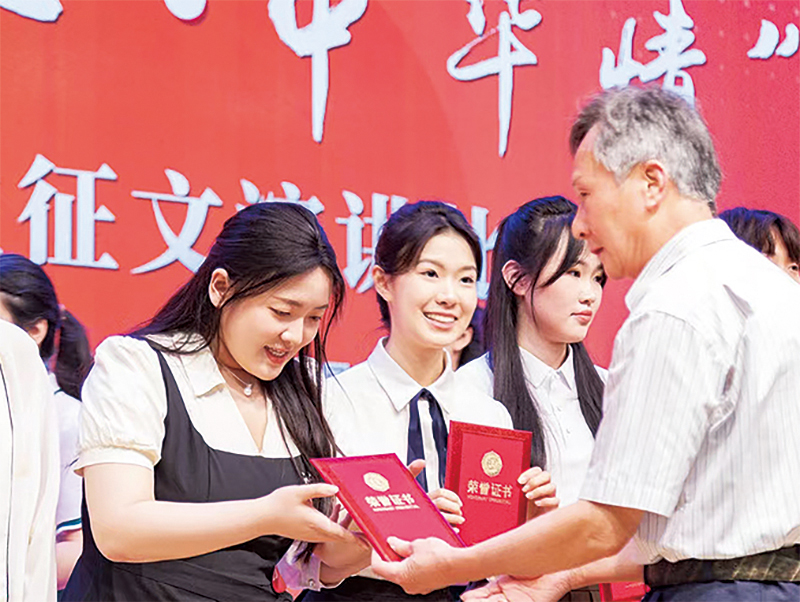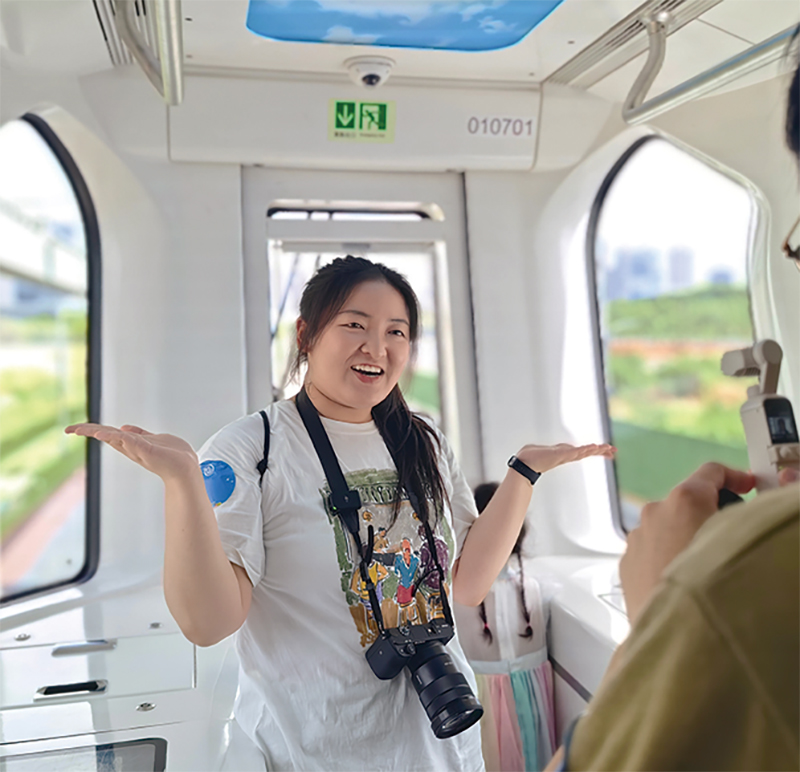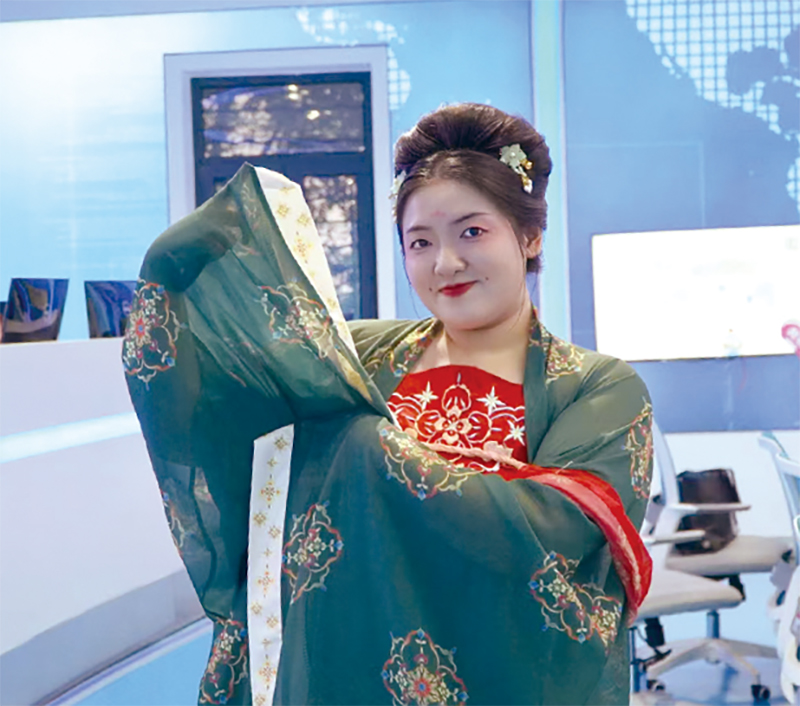STEM student discovers a passion for storytelling and is dedicated to creating impactful journalism that resonates with her audience.

During her sophomore year, Liu Fang, a student from Taiwan studying at Huazhong University of Science and Technology (HUST) in Wuhan, Hubei, made a significant decision: she changed her major from math to journalism.
Although her university is recognized for its STEM programs, Liu felt inspired to take a different path.
The turning point came when Liu participated in a school event that required attendees to plan, film, and edit a short video centered on life at HUST. That was her first experience with video production.
Inspired by HUST's nickname as the "University in the Forest "due to its lush greenery, Liu decided to create a campus vlog titled Green at HUST. The video not only showcased the campus environment but also conveyed the vibrant spirit of the students through the metaphor of green.
Despite lacking formal training, Liu managed to sketch a storyboard and film in various locations around campus.
"Before, while I had many ideas, I would often put them off," Liu said. "But when I was filming and editing a video, I acted on my ideas right away. That made me feel accomplished and confirmed my love for this work."
Now 21, Liu is studying at HUST's School of Journalism and Information Communication. "As I began my studies, my interest in video production gradually evolved into a deeper understanding of what the journalism industry is all about," she said.
Still, Liu often questioned whether she was truly suited for the media industry. Would her love for it endure once it became her job? This was a recurring concern for her.

To find answers, Liu interned for a month at a local media outlet this summer, starting her journey as an emerging journalist. However, this advancement came with its own set of challenges.
Early in her internship, Liu was fortunate to have the opportunity to report on several events.
Throughout the month, she gained valuable experience with each reporting task, continually applying what she learned in the classroom to the real world.
One of Liu's most memorable interviews was with a 12-year-old girl from Taiwan, whom she interviewed twice.
They first met during a cultural exchange event between young people from Taiwan and Wuhan. The girl surprised the audience with an impromptu piano performance at the opening ceremony, which Liu thought would make a good news story.
Unfortunately, since the performance wasn't included in the program guide, Liu hadn't prepared adequately. The girl was also nervous during their first conversation, and due to the rushed timing, Liu wasn't able to gather enough content.
When they met again just a few days later at another music event, Liu approached the second interview with a more relaxed mindset. To her delight, the girl was much more open and expressive this time.
This experience taught Liu the importance of thorough preparation before an interview — something she hadn't done on her first attempt.
"Preparing in advance, creating a comfortable environment for the interviewee, and having the courage to try can lead to unexpected results," Liu said.
Another challenge Liu faces as a novice reporter is learning to ask her questions with confidence.

Liu admitted that she only feels comfortable discussing topics she is familiar with and can easily get anxious when conversations enter areas that are new to her.
She recalled an interview with a Taiwan law student at Wuhan University, where her limited legal knowledge left her feeling out of her depth, and she struggled to articulate her questions.
In another instance, when an important figure was surrounded by reporters, Liu's mentor encouraged her to ask a question. However, worried about making a mistake, Liu hesitated and didn't step forward.
These experiences left Liu feeling frustrated but also inspired her to approach future interviews more boldly.
"It's really important not to be afraid to ask questions, even if they seem silly — don't let any opportunity pass you by," she said.
From preparation to wrapping up an interview, the final step in completing a report is making the video.
For Liu, condensing a wealth of interview material into a concise video was a significant challenge. At first, she struggled with deciding what to include, feeling uneasy about omitting the voices of her interviewees.
However, she soon realized that as a journalist, she had a responsibility to her audience as well. "When I focused on the quality and coherence of the report, making decisions became much easier," she said.
Liu observed that with the rise of new media, the ways content is shared have changed significantly, with more viewers drawn to short, engaging videos. Yet, she has found that while these videos can quickly capture attention, they often fail to create a lasting impact.
This is why Liu aspires to produce more in-depth reports in the future. "I hope my work can truly make a difference or leave a lasting impression," she said.
Following her monthlong internship, Liu has gained clarity: she is both well-suited for and passionate about journalism. "I believe a qualified journalist should think critically, stay curious and sensitive to the world around them, and approach each interviewee with sincerity," she said.
Contact the writers at mengwenjie@i21st.cn


